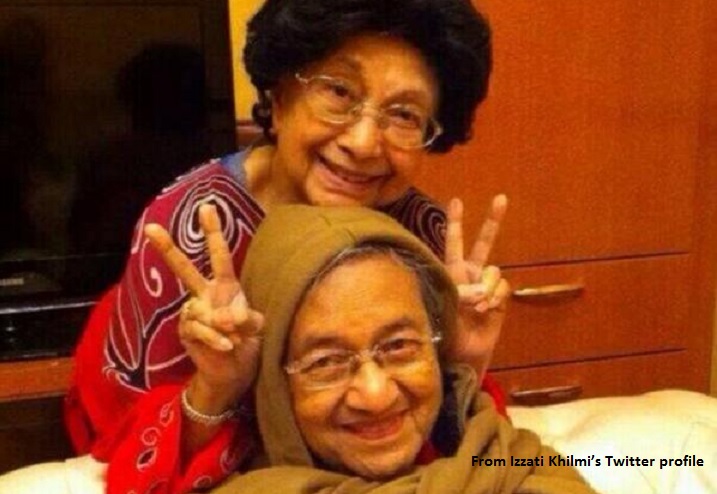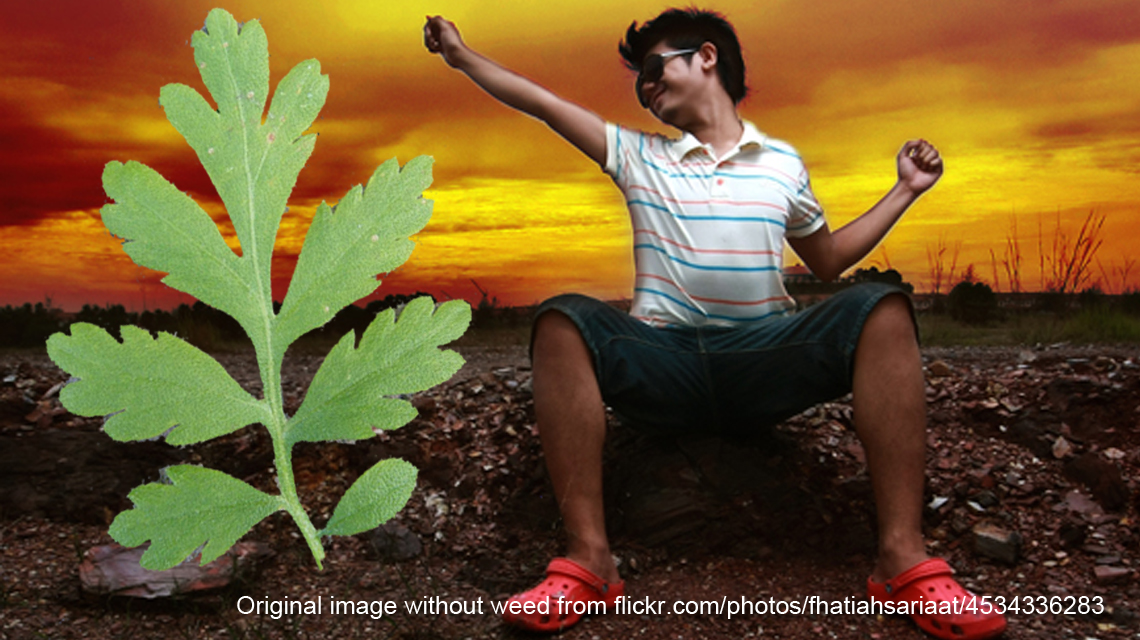Malaysia vs Indonesia: Whose Ramadan is better? We compare

- 56Shares
- Facebook36
- Twitter4
- LinkedIn4
- Email5
- WhatsApp7
Much like the Kardashian sisters, Malaysia and Indonesia somehow always manage to get under each other’s skin. From claiming clothes to claiming songs, our petty squabbles are many but that’s mostly because our cultures overlap so much we’re bound to step on each other’s toes one way or another.
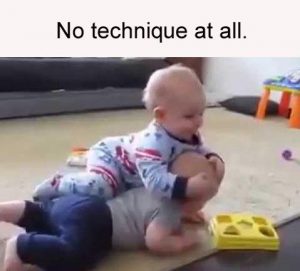
And what better opportunity to fan that fire a little more, than compare our Ramadan and Raya customs? 😝 Cos you’d think with all our similarities and the fact that we’re such close neighbours, the way we celebrate these festivals would be identical… or at least as near identical as possible. But that’s not the case at all. Surprised? We are, especially since Islam is the largest religion in both these countries. So without further ado, let’s start with…
1. Bulan puasa activities
We’re not talking bazaars, though yes, both Malaysia and Indonesia have them. And while our activities differ, they’re actually both centered around the buka puasa period.
We’ll kick this off with Indonesia and the practice of ngabuburit, which may be a bit of a tongue twister on our untrained Malaysian tongue. The term actually originates from Sundanese, where burit directly translates to evening and the word as a whole means leisurely awaiting the evening hour. Essentially, ngabuburit is that specific time in the evening where Indonesians busy themselves with activities while they wait for that sweet call of azan to buka puasa.
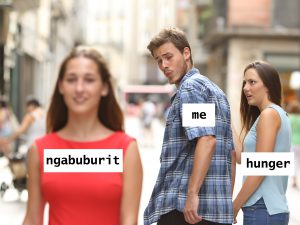
Ngabuburit can refer to a whole load of things and it doesn’t necessarily have to relate to Ramadan or Raya, though of course there are those kind of activities too like visiting Ramadan bazaars and attending Islamic ceramahs. Youngsters nowadays prefer going to malls and hanging out with friends so it’s anything really, so long as it fills up your afternoon and is fun… sorta?
In Malaysia, it’s the other way round where moreh happens after buka puasa. In super simple terms, moreh is a feast with the homies. Traditionally, it’s held in masjids and suraus after terawih prayers are over, and everyone gathers to have supper together. The point of is for people to talk to each other and make friends but perhaps more importantly, it’s a way to help the poor by providing food.
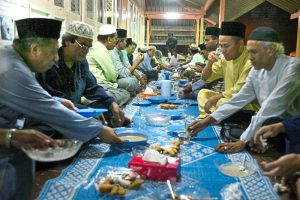
And what a coincidence that moreh too has taken a sort of modern twist, with people nowadays heading out to restaurants after their prayers. In fact in Terengganu, there’s even a special Ramadan bazaar for moreh that operates up till dawn! But for those who prefer restaurants instead, here’s a list of eateries (KL centric, maaf) to indulge your late-night moreh cravings.
2. Signature dishes for buka puasa
Ah, probably everyone’s most favourite part of the month (including non-Muslims)– special Ramadan FOOD!! And indeed, this part’s special because each of our signature buka puasa dishes are unique to our own countries.
The Indonesian takjil refers to snacks, specifically, snacks to break fast. The word itself derives from Arabic, which when translated line for line, means the act of breaking fast as fast as possible–hence, snacks. Usually it’s sweet desserts, since sweets give you that quick energy boost which is especially important after a long day of fasting.
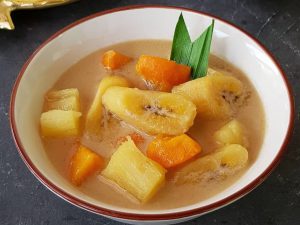
Some of the most popular takjils include kolak–a palm sugar-coconut concoction that contains bananas and sweet potatoes among others, as well as dates. Yes, plain simple dates! In fact there’s this thing called berbagi takjil which is when people distribute takjil snacks–usually, dates, cake and a bottle of water on the roadside before buka puasa. And they do it voluntarily, for those who are stuck in traffic and won’t be able to break their fast on time. Uwu, so sweet right?
In Malaysia, we have our bubur lambuk, also a favourite when breaking fast. But where takjil is usually sweet, bubur lambuk is as savoury as it gets! Made from spices and meat, it’s a dish that is often distributed freely during Ramadan, especially to the poor and homeless.
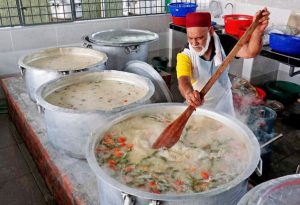
Lambuk means ‘scattered’ so the dish’s name actually describes the way its cooked–all the ingredients thrown into a single pot. The recipe is said to have originated from a Pakistani man who would cook it for Muslim devotees visiting the Masjid Jamek Kampung Baru mosque waaaay back in 1949. And after he passed, the tradition was picked up by those who ran the mosque and to this day, still continues.
3. Lively traditions to keep you up at night
What’s loud and draws a crowd? If you guessed firecrackers, you’re absolutely correct, and it’s the very thing that features in both countries, though in different ways.
We’ve mentioned the origins of a couple of words already and they’re all interesting on their own but perhaps it’s Indonesia’s dugderan that takes the cake. The name comes from a combination of two sounds–dug, the sound of a beating drum and der, the sound of a cannon exploding. Over time though, because the cannons were a bit much, they were replaced with firecrackers and something called a bleduran. Honestly, looks like a meriam buluh, what do yall think?

Dugderan is a festival to mark the onset of the fasting month and takes place in Semarang, Central Java about a week before Ramadan begins. It’s colourful, busy and loud, and it has its own mascot, the Warak Ngendog. Now this is a sight to behold. The Warak Ngendog has a head of a dragon, a neck of a camel and the legs of a goat, and its mismatching body symbolises the many ethnicities that live harmoniously in the region.
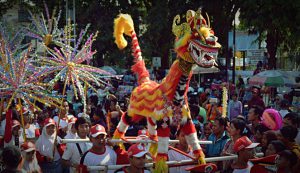
We can’t talk about lively celebrations without mentioning fireworks in Malaysia. We love it so much we light them up on every festival, be it Raya or Deepavali or CNY. This is a Malaysian custom through and through but it’s our tradition with the meriam buluh that’s a legit Raya special!
So back in the day, meriam buluhs were the weapons of choice in defending towns and cities. By the 1800s though, technology had developed enough that we replaced them with cannons, and the meriam buluhs were used for a totally different purpose.
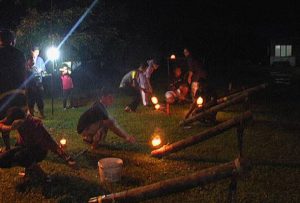
You see, people were using the beduk (large drum) to announce prayer times but it wasn’t loud enough to reach those living far away, so during this one particular month of Ramadan, they blasted the meriam and it was so loud and reached so far (4km!!) that they stuck with it. Fast forward a couple of years, the sound of the meriam buluh became synonymous with two things–the onset of Ramadan and Raya.
4. Common raya customs
So here’s where things start to take on a same-same but different feel. Because while Malaysia and Indonesia have different names for the following practices, they’re more or less the same thing.
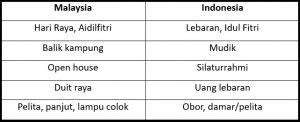
Okay, so Indonesia may have better Ramadan celebrations…
Like seriously, a mythical creature with a dragon head and goat feet?? There’s no way we can beat that so we’re gonna have to hand it to Indonesia for this one. But any Malaysian worth their salt would tell you it all boils down to food. And whaddaya know, Malaysia and Indonesia actually share the same traditional treats! All those yummy ketupats and rendangs and sambals and gravys sure do transcend borders… unless that starts another fight.
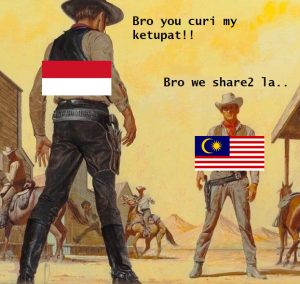
Okay, okay, in all seriousness, Muslims all around the world fast as a religious obligation, with fasting being 1 of the 5 pillars of Islam. It’s all about self-discipline, empathy and helping out the less fortunate. Plus, it’s a great opportunity to self-reflect and get in touch with your spiritual side. And when you peel back all the many different customs and traditions, it’s pretty clear that it’s this very essence of Ramadan that both countries celebrate.
- 56Shares
- Facebook36
- Twitter4
- LinkedIn4
- Email5
- WhatsApp7

